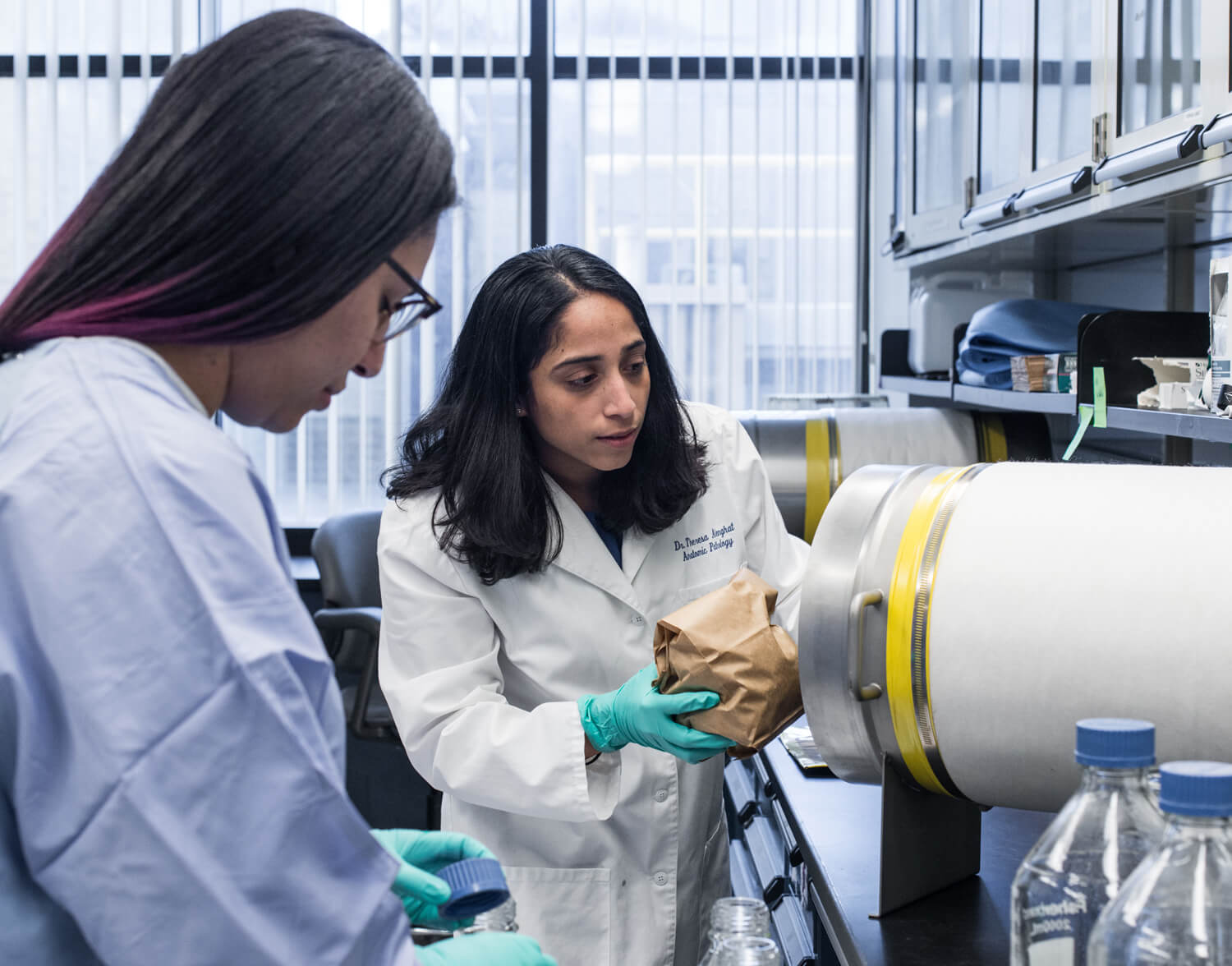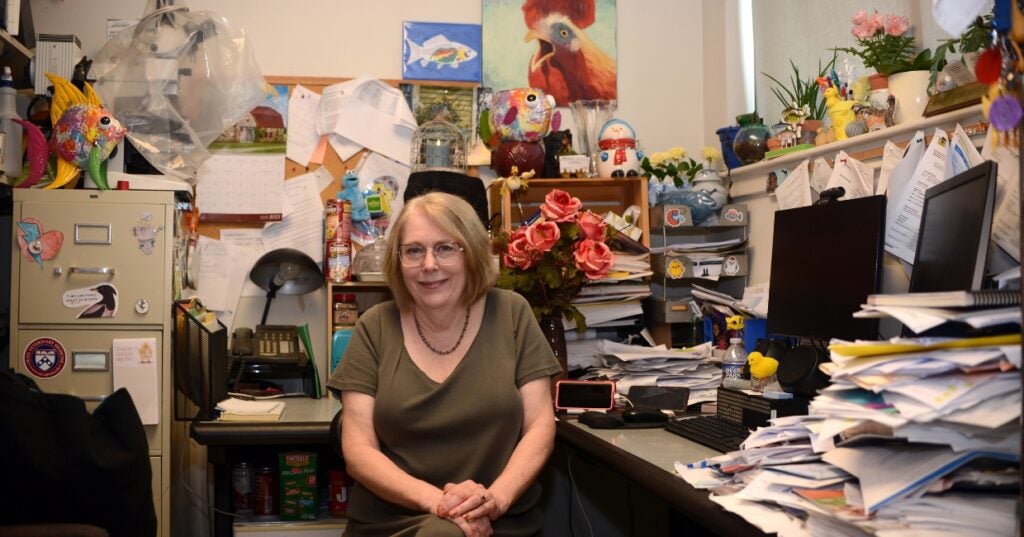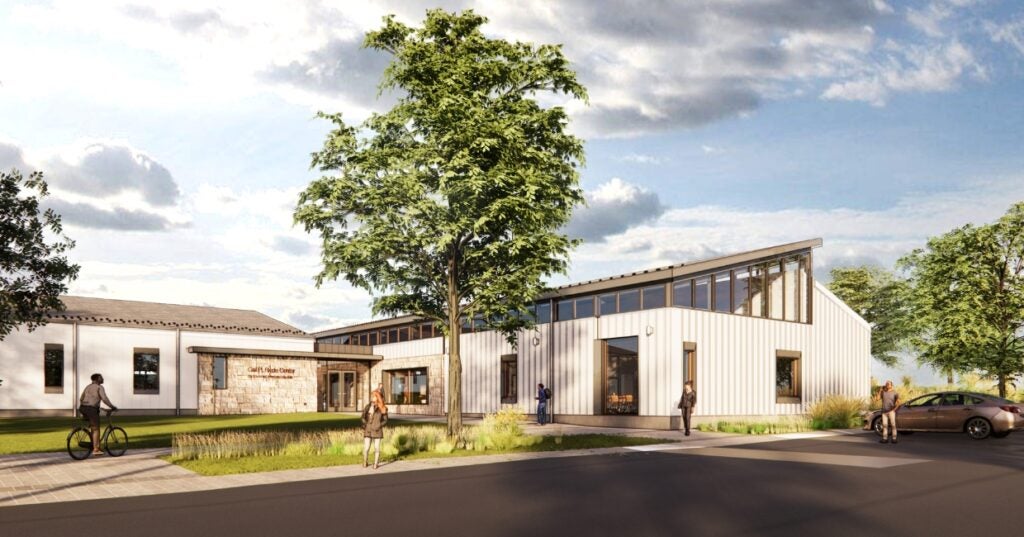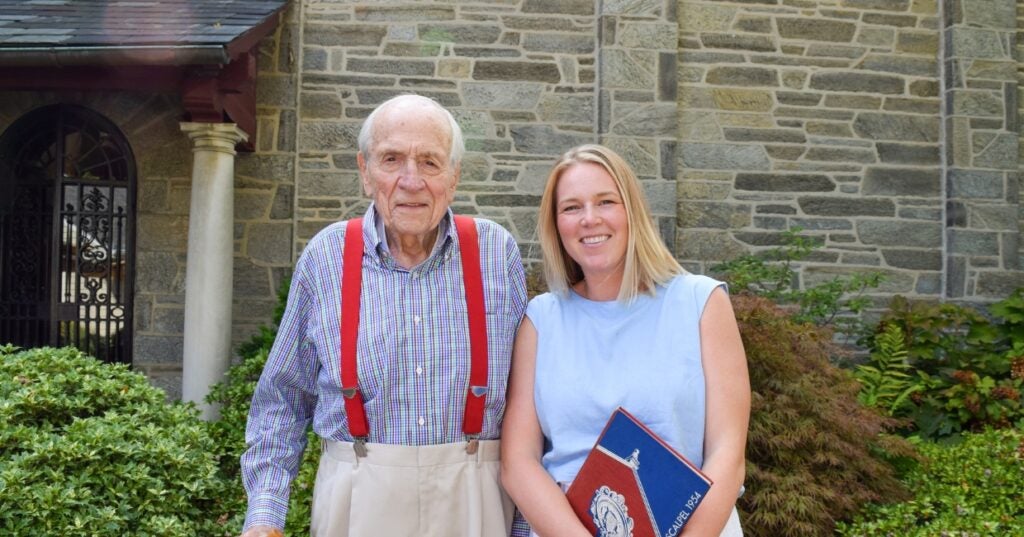Theresa Alenghat, V’03, PhD’07

Dr. Theresa Alenghat, was certain about one thing as a child: she would one day be a veterinarian who cares for small animals. Then she arrived at Penn Vet. The School changed her vision of what being a veterinarian would mean.
Alenghat’s experience as a VMD-PhD student set her on a path to the research bench, where today she is internationally noted for studying the influence of gut microbes on health and intestinal diseases.
While earning her VMD, Alenghat did graduate work with Penn’s Dr. Mitch Lazar, whose laboratory at Perelman School of Medicine studies diabetes and metabolic disease. “I learned in the Lazar Lab that I’m really drawn to the intersection of basic science and pathology,” she recalled.
An anatomic pathology residency at Penn Vet confirmed her trajectory. “While I gained a valuable new set of skills and deep understanding of pathology, I missed being at the lab bench and wanted to focus on testing the unknown,” she said of her decision to return to research after residency.
“My lab’s work now is one hundred percent an extension of what I learned from Penn Vet in combination with amazing graduate and postdoctoral research experiences. Penn Vet was the foundation — my research would not be what it is without the comparative, cross-species and multisystem training I had at the School.”
Understanding the Microbiome — High Risk, High Reward Research
Today, Alenghat’s research happens at Cincinnati Children’s Hospital Medical Center. She directs a laboratory that investigates how resident microbes (microbiome) influence epithelial and immune cells and their impact on health, infection, and inflammatory conditions.
“We seek to understand how intestinal microbes communicate with the rest of the body,” she explained. “There’s strong evidence that the composition of these microbes and how they’re contained are disrupted in many inflammatory conditions. Our lab is quite interested in understanding how that happens — and are they actually causative in some of these diseases? Are they driving critical pathways or enzymes in our cells that can predispose to development of disease over time?”

For this work, in 2015, the Pew Charitable Trusts recognized Alenghat as a Pew Scholar for her innovative approach to “high-risk, high-reward research” that can lead to extraordinary findings in bioscience.
“Our lab enjoys asking broad questions,” she explained. “We explore mechanisms that allow the microbiome to regulate health and disease — and we try to follow the data to new questions. Right now, we’re investigating multiple pathways that seem to be sensitive to different resident bacteria but have not yet been explored.”
Radical Breakthroughs
One of the lab’s recent extraordinary findings was published in the journal Nature last summer. The study shows “good” bacteria, which help us digest food and strengthen our immune systems, are also critical to the healing of damaged intestinal tissues.
Most immediately, these findings suggest different bacteria are sensed by the intestine and can help repair tissue damage among people suffering from inflammatory bowel diseases, such as Crohn’s disease and ulcerative colitis.
“We found that resident bacteria break down the diet to a substance that activates an important enzyme in the intestine,” said Alenghat. “This finding is surprising in part because it illustrates how sensitive our health is to constant interactions with organisms that normally live in our bodies. If we can influence these interactions, we may be able to control many diseases that are impacted by our microbiome or diet.”
A Secondary Yet Primary Role
An acclaimed researcher and author of more than 30 publications cited more than 3,000 times, Alenghat also plays another role, one she didn’t expect but embraces — that of role model and advocate.
A mom of two boys, Alenghat shared, “I didn’t realize until I became a faculty member that the number of women, and especially moms, overseeing independent basic science labs is relatively low,” she said.
True to form for someone who loves to address perplexing questions she added, “I’ve become very tuned into this overall issue. I don’t have answers, but the challenge is certainly at the front of my mind these days. It’s a puzzle our field needs to tackle, and I am committed to doing my part by extending opportunities to women in science and amplifying their voices and successes.”
More from Bellwether

In the Office with Donna Kelly, DVM, MASCP, DACPV, DACVPM
Donna Kelly, DVM, MASCP, DACPV, DACVPM, shares her New Bolton Center office with the campus’s microbiology reference library.

Breaking New Ground: Penn Vet Builds Future-Ready Learning Hub
Set to open in the coming months, the 11,800-square-foot clinical skills center will be the first dedicated classroom space on the Kennett Square campus, ushering in a new era of…

A Love of Animals and the Land
The Penn Vet of Dean Snyder, V’54, was a very different place than today. So was the world.
